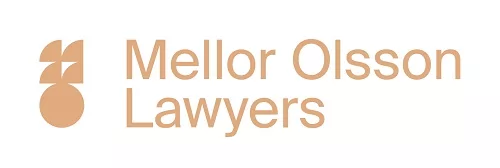The Voluntary Assisted Dying Act 2021 (SA) ("VAD Act") came into effect in the early stages of 2023 and has introduced a formal euthanasia protocol, becoming available in South Australia for the first time.
What is the Voluntary Assisted Dying Act (VAD)?
Under the VAD Act, a terminally ill person has the option to navigate a system of referrals and assessments ("the VAD system") to confirm whether they are an appropriate person for euthanasia. If they are deemed an appropriate candidate by a medical professional, the person is issued with medication that will cause death. This can be taken at a time and place of their choosing or can be administered by a medical practitioner.
The VAD Act had a good deal of media attention when being passed through South Australian Parliament and its recent commencement has put the topic back in the spotlight.
Naturally, this attention has caused an increase in clients asking questions about what the system might mean for them in the future and how it can be incorporated into their estate planning documents.
What is the difference between 'Estate Planning' and 'making a Will'?
For a large portion of the population, the phrase "estate planning" probably means the same as "making a Will". We encourage clients to see that estate planning is broader than just making a Will. There are other documents that go alongside the Will and further issues to consider - see our article 'The importance of getting your affairs in order' to guide you through those other aspects in more detail.
Advanced Care Directives and substitute decision-makers
One of the documents you should consider is an Advance Care Directive.
Through making an Advance Care Directive you can appoint someone to be your "Substitute Decision Maker" for choices regarding your living arrangements and future medical care. In other words - if you lose your ability to make these decisions for yourself, your Substitute Decision Maker (or Makers if you appoint more than one person) can step in, as per your wishes and directions.
One section of the Advance Care Directive deals with binding refusals of health care - this is where we can include statements about healthcare that you do or do not want. For a majority of our clients, this is where we include a statement to say for lack of a better expression. Pull the plug.
Typically we draft the statement a little more legally than that, though it essentially amounts to a direction that if you're in a condition from which you will not recover, then the medical team should only focus on pain relief and comfort, rather than continuing to attempt treatment.
Can I request Voluntary Assisted Dying in my ACD?
At first glance, the above is broadly similar to the VAD system - but there is a crucial difference.
The VAD system requires the person to be actively involved in making decisions along the way. The Advance Care Directive only comes into effect when you no longer have your decision-making capacity.
The first test in the VAD system for the medical practitioner to consider is whether you have decision-making capacity, defined in the VAD Act as being able to:
- understand the information relevant to the decision relating to access to voluntary assisted dying and the effect of the decision; and
- retain that information to the extent necessary to make the decision; and
- use or weigh that information as part of the process of making the decision; and
- communicate the decision and the person's views and needs as to the decision in some way, including by speech, gestures or other means.
If a person does not meet this test, they cannot proceed through the VAD system; and the Substitute Decision Maker cannot lead the charge on your behalf.
There are a couple of things to consider here from an estate planning perspective.
Ultimately, no document can serve as a placeholder for your wishes concerning the VAD system (because the decision must be driven by you), but it is important to recognise that the Advance Care Directive still has an important function.
The Advance Care Directive serves as a record of all your healthcare and lifestyle wishes. By recording these wishes in a signed document, you alleviate the burden of those choices from your family and reduce the number of "Well I don't know what Mum / Dad wanted, we never really spoke about it" conversations that take place in hospital corridors. As noted earlier, these wishes can include a refusal of further treatment and administration of pain relief - Nevertheless, this may hasten (speed up but not directly cause) your death.
It is also critical to ensure that anyone embarking on the VAD system has the rest of their affairs in place - including having an appropriate Will in place and, depending on their circumstances, other documents as well.
The content of this article is intended to provide a general guide to the subject matter. Specialist advice should be sought about your specific circumstances.

